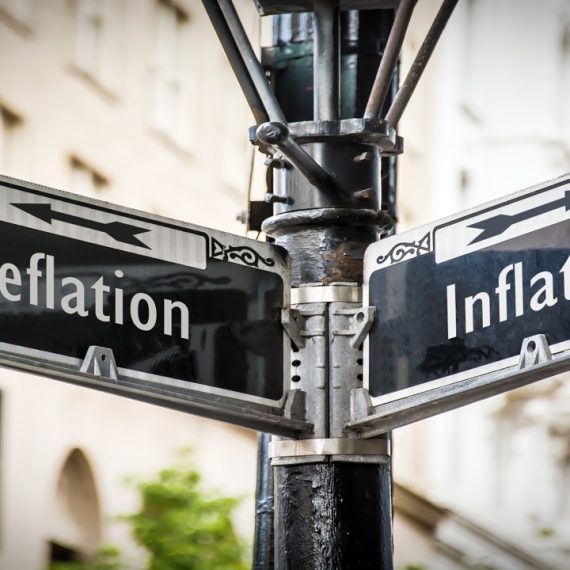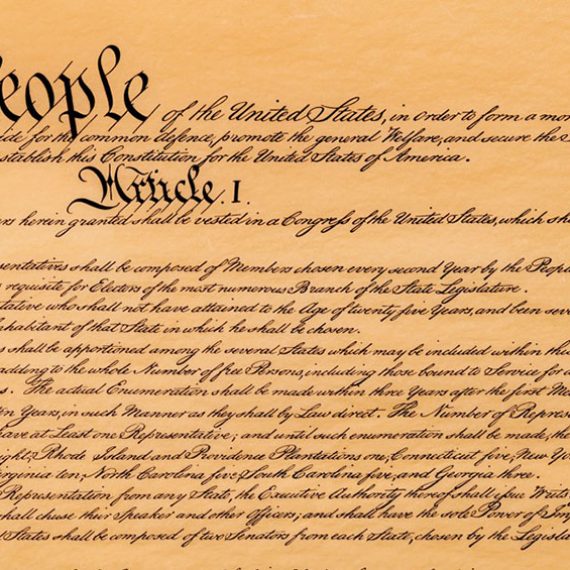February 21, 2005 – The International Monetary Fund supposedly owns about 3,200 tonnes of gold. I say ‘supposedly’ purposefully, because like the deceptive accounting used by so many central banks to report their gold holding, one never knows for sure whether all the gold is really there or not.
Assuming the IMF’s gold has not already been lent or otherwise compromised in some way, it will be useful to put this weight of gold into perspective. It is approximately equal to 15 months of new production as well as 2.3% of the world’s aboveground stock of gold. It is therefore one of the largest hoards of gold in the world, which makes it a political football.
Recently, Gordon Brown, Great Britain’s Chancellor of the Exchequer, has been talking about mobilizing some of the IMF’s gold to help heavily indebted poor countries. He has proposed that the gold be used to write off debts owed by poor countries under the IMF’s so-called “Debt Relief Under the Heavily Indebted Poor Countries (HIPC) Initiative”.
This proposal to use IMF gold for this purpose is not new. This same Gordon Brown also raised it in 1998. Back then he proposed selling some of the IMF’s gold, an action that would require an 85% approval, based on subscriptions by countries to the IMF’s capital. Given that the US vote equals 17%, an attempt was made to get the required Congressional approval. But the idea to sell IMF gold created such a controversy that a broad coalition of congressman and senators vetoed it.
Apparently not satisfied with this result, Gordon Brown thereafter announced in May 1999 that Britain intended to sell one-half of its gold reserves. That announcement sent the gold market into a tailspin, which culminated at $252 per ounce ($8.10 per goldgram) in July 1999. Given this track record apparently aimed at damaging the gold price, one clearly has to question Mr. Brown’s motives, a conclusion that can also be reached by looking at the countries he is supposedly trying to help.
So far debt reduction packages have been approved by the IMF for 27 countries, 23 of them in Africa, providing $32 billion in debt service relief. Gold mining is a significant industry in many of these countries, so gold exports are for them an important source of generating foreign exchange to purchase needed imports.
Clearly, there are valid concerns that any dishoarding of gold by the IMF will lower the gold price and therefore hurt the very countries that Gordon Brown says he is ostensibly trying to help. Consequently, I am reminded of Ronald Reagan’s quip: “The most terrifying words in the English language are: I’m from the government, and I’m here to help.” Therefore, is Mr. Brown really trying to help poor countries, or does he have some other, undisclosed objective?
Given the time-tested and accurate premise that central bankers and finance ministers only tell you what they want you to hear, Gordon Brown’s pronouncements should be assessed on the consequence of the action he proposes, rather than what he says they intend to accomplish. So it would appear that his objective is not to help heavily indebted poor countries, but rather, to do everything within his power to lower the gold price. Why?
We can only speculate as to his intent, but logic and historical practice show it is to help the banks that are in trouble. In trouble? Yes, there are banks in trouble because they do not have the ability to repay their gold liabilities.
Banks take deposits in many different currencies – dollars, pounds, euros and all the other national currencies. Some banks, known as bullion banks, also take deposits in gold.
When these gold deposits are used to make gold loans, bank assets and liabilities are matched, thus providing banks with a low-risk way to generate income, namely, by earning the spread between the interest income the banks earn on their gold assets and the interest expense they pay on their gold liabilities. But banks often try to reach for greater profits, and one way they do that is to mismatch their assets and liabilities, thereby taking greater risk. Some of the bullion banks have taken huge risks with gold. They accepted gold deposits, but used this gold to fund dollar assets.
Their expectation was that they would profit in two ways. The interest they pay on gold deposits is less than dollar deposits, thus widening the spread between their dollar assets funded by gold liabilities. Second, they expected gold would continue to fall, and they would thus profit by repaying their gold liabilities with fewer dollars. But it didn’t work out that way.
Gold has risen against the dollar, and other currencies too for that matter. Thus, the bullion banks are stuck. Their gold liabilities are becoming an ever-bigger loss-making burden for them. So Gordon Brown apparently has been asked to help them, and not the heavily indebted poor countries, which are just being used as a smoke screen to hide his true intent and to provide a politically correct framework and perception under which to dishoard the IMF’s gold.
Given that he is a political lackey, Gordon Brown does what he is told, even though he was embarrassed once before by failing to get the IMF to dishoard gold in 1999. In fact, he has been embarrassed more than once, because his decision to dishoard one-half of Britain’s gold reserves has cost the British taxpayer billions of pounds. But Mr. Brown doesn’t care about these fumbles because he was just doing as he was told. And because he was just following orders, he rightly still has his sights aimed on more important things, namely, leadership of Britain’s Labour Party and Tony Blair’s successor as prime minister.
To achieve that goal he needs the support of Britain’s powerful financial interests, of which the bullion banks are an essential part. Thus, there really is no surprise here in his talk about IMF gold. Mr. Brown, the consummate politician, is just pursuing self-interest. But he has also done us gold bulls a favor.
His pronouncements marked an important low in the gold price in 1999. The recent $408 price achieved after his latest announcement probably marks another important low.
Gold is in a bull market. So use any attempts by Gordon Brown and other lackeys of the bullion banks to jawbone it lower as an opportunity to buy more of it.

 My objective is to share with you my views on gold, which in recent decades has become one of the world’s most misunderstood asset classes. This low level of knowledge about gold creates a wonderful opportunity and competitive edge to everyone who truly understands gold and money.
My objective is to share with you my views on gold, which in recent decades has become one of the world’s most misunderstood asset classes. This low level of knowledge about gold creates a wonderful opportunity and competitive edge to everyone who truly understands gold and money.
